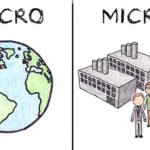Recently, a group of artists made headlines by leaking OpenAI’s Sora video model as a form of protest. This controversial act has sparked discussions about the ethics of AI technology, intellectual property rights, and the power dynamics between tech companies and the creative community.
**Background of OpenAI**
OpenAI is a research laboratory based in San Francisco that focuses on artificial intelligence. The organization has been at the forefront of developing cutting-edge AI models, including GPT-3, DALL-E, and most recently, Sora. These models have gained widespread attention for their ability to generate realistic text, images, and videos that are indistinguishable from human-created content.
**Introduction of Sora Video Model**
Sora is OpenAI’s latest video model that can generate highly realistic videos based on text prompts. The model has the capability to create scenes, characters, and animations that are incredibly lifelike, blurring the line between what is real and what is generated by AI. This technology has immense potential for various applications, from film and entertainment to virtual reality and gaming.
**The Leak**
The controversy began when a group of artists claimed responsibility for leaking the Sora video model online. They argued that OpenAI’s strict usage policies and licensing agreements were hindering the creative potential of the technology. By making the model freely available, they believed that more artists and creators would be able to explore and experiment with its capabilities without restrictions.
**Ethical Concerns**
The leak of the Sora video model raises important ethical questions about the ownership and control of AI technology. While OpenAI invests significant resources in developing these models, should they have the sole authority to dictate how they are used and shared? Some argue that AI models, especially those funded by public resources, should be made more accessible to the broader community for innovation and progress.
**Intellectual Property Rights**
The issue of intellectual property rights is central to the debate surrounding the leak of the Sora video model. OpenAI, like many tech companies, relies on patents, copyrights, and licensing agreements to protect its innovations and monetize its products. By leaking the model, the artists challenged these traditional notions of ownership and sought to democratize access to AI technology.
**Impact on the Creative Community**
The leak of the Sora video model has sparked a conversation within the creative community about the role of AI in art and expression. Some artists view AI models as tools for enhancing their creativity and pushing the boundaries of what is possible. Others worry that the increasing reliance on AI-generated content could diminish the value of human creativity and craftsmanship.
**Future Implications**
The controversy surrounding the leak of the Sora video model highlights the complex interplay between technology, creativity, and ethics. As AI continues to advance and permeate various aspects of society, it is crucial to address these issues proactively. Finding a balance between innovation, ownership, and accessibility will be key to ensuring that AI benefits society as a whole.
In conclusion, the leak of OpenAI’s Sora video model by artists in protest raises important questions about the ethical and legal frameworks that govern AI technology. It challenges us to rethink traditional notions of ownership and control in the digital age and to consider how we can harness the power of AI for the greater good. As the debate continues, it is essential for stakeholders to engage in thoughtful dialogue and collaborate on solutions that promote innovation, creativity, and inclusivity in the AI ecosystem.






